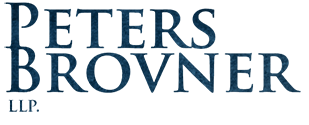What should I know before joining the Board of a Not-for-Profit in New York?
Lesley Brovner & Mark Peters
January 24, 2022
1. Make sure the organization has been properly set up and incorporated:
• Have articles of incorporation have been filed with the Secretary of State
• Have necessary filings been made with the NYS Attorney General’s Charities Bureau?
• Does the organization have suitable bylaws?
• Is the organization set up with proper record keeping?
• Is there an EIN number?
• Is there a 501(c)(3) certification from the IRS?
• Has the organization obtained tax exemptions from various state and local authorities?
• Does the organization have a conflict-of-interest policy?
• If the organization has 20 or more employees and more than $1 million in revenue, does it have a whistleblower policy?
• If the organization intends to engage in fundraising, has it properly filed to do so with the Attorney General’s Charities Bureau?
2. Make sure the organization has Directors and Officers Insurance
3. Make sure the organization has been meeting its various filing/accounting/board meeting obligations:
• Filing obligations: 990s
• Accounting obligations: annual audit
• Board meeting obligations (The Board must meet at least once a year, although more frequent meetings are clearly advisable.
What are my obligations once I’ve joined the Board of a Not-for-Profit in New York?
1. Duty of care
The first obligation of any board member is a duty of care. This is a duty to put in the time to make sure that the organization is being run prudently and in accordance with all its obligations. Some specific obligations include:
• Attending board meetings and reviewing board materials in advance of meetings.
• If you dissent from a particular action of the board or organization, making sure this is clearly reflected in the minutes of the board meeting.
• Being involved in the organization’s annual review of its CEO, CFO and other key employees.
• Reviewing budget reports and any financial filings that are required by law.
2. Duty of loyalty
Board members have a duty of loyalty to the organization that should be spelled out fully in the organization’s conflict-of-interest rules. These rules may prohibit actions that create even the appearance of conflict. Should a conflict arise during your tenure on the Board, you must disclose it immediately to the Board and recuse yourself from any Board action relating to the conflict.
3. Duty of obedience
A board has a duty of obedience to ensure that the organization complies with applicable laws and regulations and its internal governance documents and policies, including:
• Dedicating the organization’s resources to its mission;
• Ensuring `that the organization carries out its purposes and does not engage in unauthorized activities;
• Making sure the organization complies with all appropriate laws.
For more information please contact the lawyers at Peters Brovner who have experience advising not-for-profits on a variety of issues for a free consultation.
